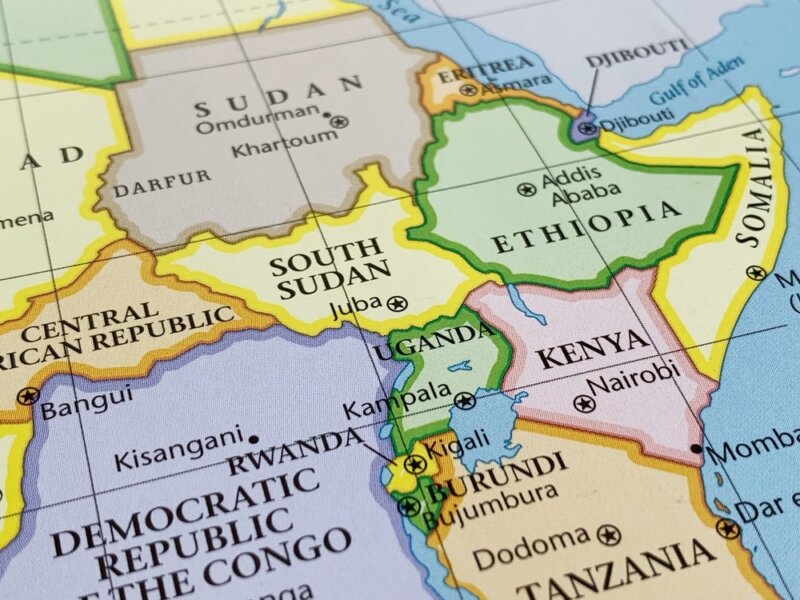Stati Uniti e Pakistan: importanza delle relazioni e della collaborazione
Perché, dopo mesi di difficoltà, sarebbe importante il rilancio delle relazioni e della collaborazione tra Stati Uniti e Pakistan? L’analisi di Guido Bolaffi

Tra USA e Pakistan le relazioni sono su un binario morto, che rischia di condurle ad una rottura carica di minacciose conseguenze sui complicati equilibri geopolitici dell’inquieto sub continente indiano e di tutta l’Asia meridionale. Soprattutto dopo la reazione con cui ai “piani alti” di Islamabad è stata accolta ad agosto scorso la notizia del drammatico ritiro “dell’alleato” americano dall’Afghanistan. Un comportamento incauto che, come si evince da due recenti notizie riportate con grande evidenza dai media asiatici, ha moltiplicato le difficoltà economiche e politiche dell’Esecutivo guidato da Imran Khan.
Lunedì 31 gennaio, il quotidiano Hindustan Times nell’articolo titolato Pakistan economy bleeds, China to help Imran Khan govt? scriveva: “In a desperate bid to fix the massive foreign exchange crisis, Pakistan has set its sight on a $3bn from China. As per Pak media report, the Imran Khan govt is considering requesting China for yet another loan. Imran will be visiting Beijing to attend the inaugural session of the Winter Olympics. Over the years, Xi Jinping’s China has assisted cash-strapped Pak with loans worth billions of dollars. Apart from a new mega loan, Pak media report suggests that Imran Khan would also seek Chinese investment. Recently, Pakistan raised a staggering $1bn loan with a 7-year sukuk (Islamic bond) at a record interest rate. In return for the loan raised a few days back, Pakistan agreed to pledge a portion of the Lahore-Islamabad motorway”.
Non avevamo finito di leggere, che tra le news della sezione internazionale dello stesso quotidiano abbiamo appreso l’esistenza di una lettera indirizzata al Presidente Joe Biden dal parlamentare americano Scott Perry. Con la quale il potente deputato della Pennsylvania sollecitava il capo della Casa Bianca a dichiarare Masood Khan, indicato dal Pakistan come nuovo ambasciatore a Washington, persona non gradita al governo USA: “While I am encouraged that the State Department has reportedly placed a pause on approving Masood Khan as the new Ambassador from Pakistan, a pause is not enough. I urge you to reject any diplomatic credentials presented to you by Masood Khan and reject any effort by the Government of Pakistan to install this jihadist as Pakistan’s Ambassador to the United States […] Pakistan’s nomination of a bona fide terrorist sympathiser working to undermine our interests in the region – as well as security of our Indian allies – can only be described as a breathtaking lack of judgement at best, and a demonstration of Islamabad’s unmitigated contempt for United Stated at worst”.
Per come si sono messi i rapporti tra l’America ed il Pakistan, sarebbe solo una perdita di tempo bisticciare sul tono, non certo gradevole, dell’ukaz lanciato dal parlamentare statunitense. E, all’opposto, se sia stata o meno una provocazione da parte del Pakistan quella di indicare come ambasciatore negli USA, Masood Khanun. Il quale nel suo paese non fa mistero di considerare illegale – poco importa qui se a torto o a ragione –, la detenzione nelle carceri statunitensi della jihadista Aafia Siddiqui.
Data la delicata importanza geopolitica della questione, sarebbe, invece, meglio e più produttivo se USA e Pakistan, traendo esperienza dalle ragioni che hanno segnato la fine di quella del passato, si mettessero all’opera per ridefinire termini e condizioni di una loro possibile, futura collaborazione.
Tema sul quale si è di recente coraggiosamente cimentata Madiha Afzal analista politica della Brookings Institution ed autrice del pregevole libro Pakistan Under Siege: Extremism, Society and the State. Che nel lungo articolo The U.S. Needs a Reset With Pakistan, edito dal New York Times lo scorso 25 dicembre, analizzando lo stato delle difficili relazioni tra i due paesi ha scritto: “A reset won’t be easy: Resentment is rife. America sees Pakistan’s support for the Taliban as one reason it lost in Afghanistan; Pakistan sees the Taliban insurgency it faced at home as a blowback for partnering with America next door. In Washington the grim mood has led to talk of disengagement and sanctions […] Pakistan meanwhile wants a broad-based relationship with the U.S. focused on geoeconomics which is not realistic […] It would be smarter and safer for U.S. to pivot to a multidimensional approach that acknowledges the reality of a nuclear-armed country neighboring not just Afghanistan but also Iran and Pakistan’s close friend China and nuclear-armed rival India […] The first and most important step to this pivot would be explicitly reducing American dependence on its usual partner in Pakistan: the military and intelligence services […] that have kept active the specter of potential conflict with India, and have cultivated relationships with an array of dangerous non state armed actors […] A civilian-focused U.S. policy will help Pakistan begin to shift the balance away from its military […] The military and intelligence services in Pakistan won’t be thrilled about this downgrade in their status, and they may choose to retaliate […] But the benefits from such a reset – stronger Pakistani civilian institutions, which will mean a more reliable partnership both diplomatically and militarily for United States – will ultimately outweigh short-term risks” .



